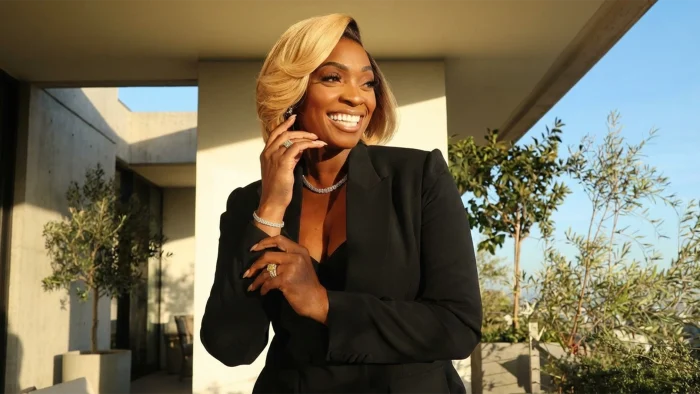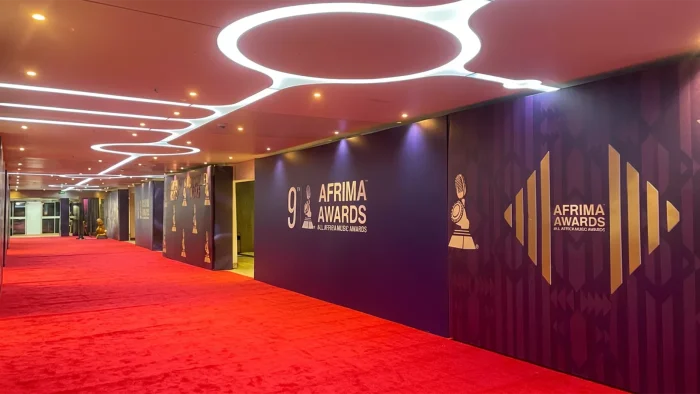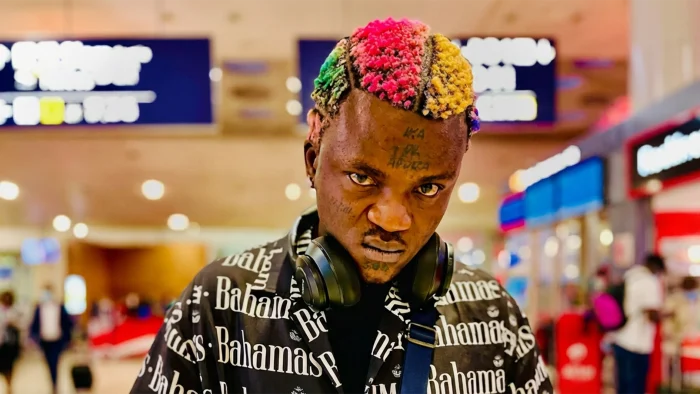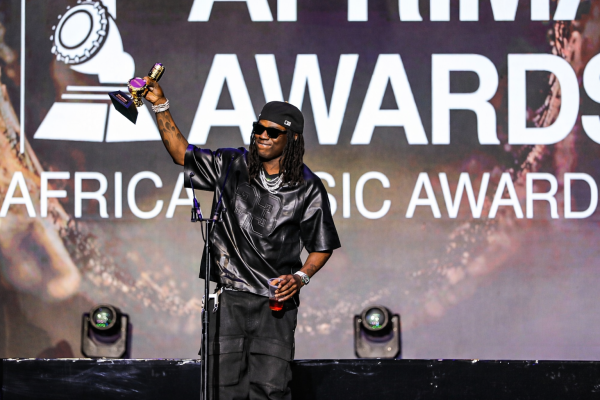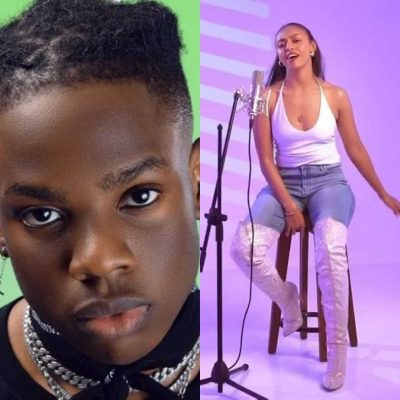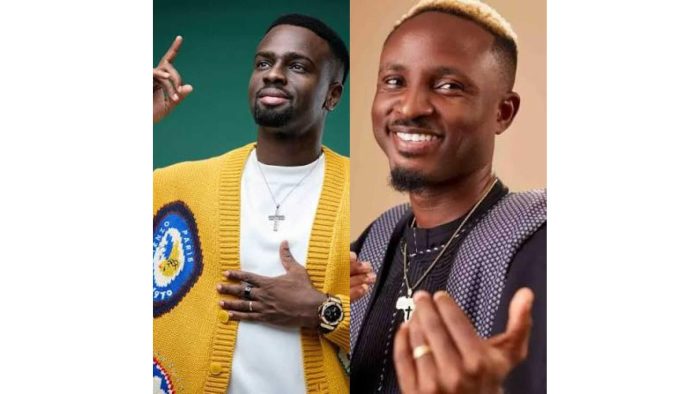- With opportunity and access to funds, I still ask why it’s not clicking,” Sharon Adeleke reflects on business success
- 9th AFRIMA finale: Live updates from red carpet to final win
- Ogun police investigates alleged assault case of singer portable while in custody
- FULL LIST: Rema, Burna Boy, Yemi Alade win big at 9th AFRIMA Awards
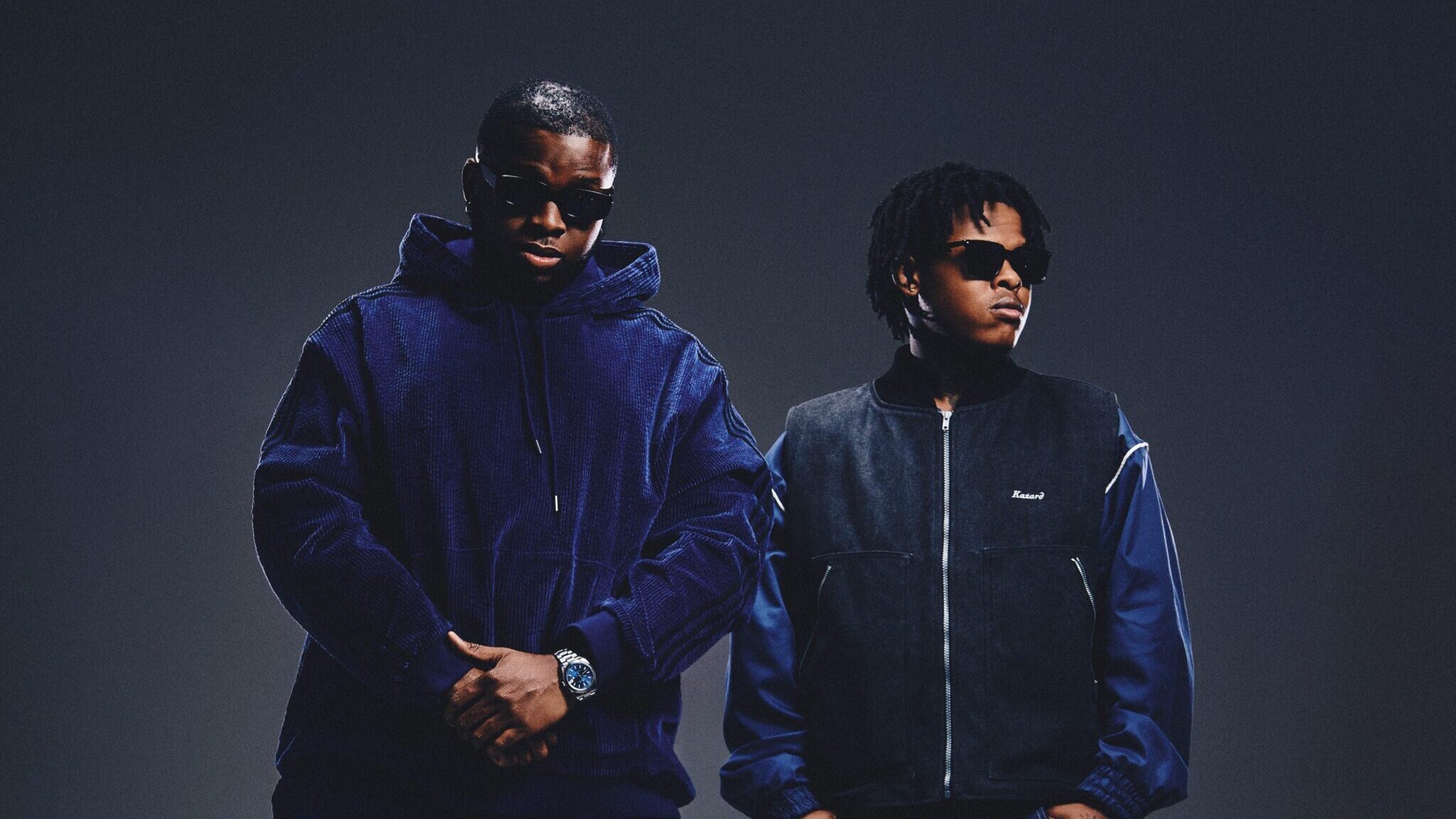
South African rapper Nasty C teams up with Nigerian producer Lekaa on their groundbreaking EP Confuse The Enemy, blending Hip Hop, Afrobeats, and Amapiano in a harmonious fusion that defies expectations.
It’s a calm Friday evening in Victoria Island. The sun sets lazily over the shoreline of what used to be Lagos’ Bar Beach front. “It’s been amazing out here,” Nasty C says. It’s his most recent visit to the city, and his eyes are gentle but aglow. “I’ve just been chilling, enjoying the sun. We’re planning to go on a boat soon and just go chill on the water,” he says, softly. It’s almost routine for him—living life on a bohemian tight-rope—and that’s exactly the spark behind his latest record, Confuse The Enemy, an eight-track duet with Nigerian producer Lekaa, which is another one for the books as far as Nigerian-South African collaborations go.
The 27-year-old award-winning rapper, born David Junior Ngcobo, teamed up with Lekaa for his first attempt at fusing his Hip Hop with Afrobeats and other dance-leaning genres, featuring mavericks like Odumodublvck, Daliwonga, Zee Nxumalo, Gabzy, Tiwa Savage, Blxckie, and other music stars. Previously, he had collaborated with Kizz Daniel on Ghetto, Davido on Coolest Kid in Africa, Runtown on Mad Over You remix, No Permission, and Said, and Odumodublvck on A1 Perico.
READ ALSO: South African Rapper Nasty C Lists His Top 5 Nigerian Rappers
A quiet departure from his traditional American Hip Hop, the record fits comfortably with Nasty C’s breezy hedonist pop themes, creating danceable records such as Use and Seduce, Life of The Party, and Pies. His pedigree as a cross-cultural collaborator shines seamlessly with Lekaa’s dance floor-ready fusions on this record, with his mid-tempo verses and catchy bars.
“There’s really nothing much left to be done, but I’ll surely want to come back here,” he tells Guardian Music, hinting at further collaborations with Lekaa, who also joins us for the chat. They take us down behind the scenes of the EP, discussing their muses, creative process, and the highlights of their duet. Nasty C believes this is only the beginning of his mission to push the boundaries with African Hip Hop. Just as the conversation ends, Lagos’ annual fireworks, set up by a popular bank in that suburb, light up the sky, ushering in some good cheer that feels very similar to the rapper’s music.

How do you feel right now with this collaboration?
It feels good to step outside my comfort zone a bit, try out new sounds, different genres, and bring my flavour to the table. It feels amazing.
Did you struggle with fusing your music with Afrobeats?
I had already dabbled a little into Afrobeats, but fusing it with Amapiano and Hip Hop was new to me. I was very nervous in the beginning, but Lekaa and the rest of my team encouraged me to be comfortable, and we did that.
So, what’s the premise of Confuse The Enemy?
It is about making something people would never expect to hear from me. Every single song sounds unique and different—nothing like the song before or after. As you’re going through the album, it’s surprise after surprise.
What inspired this idea?
I always wanted to try something new. You’re most comfortable with trying something new when you’re with someone who’s also just as passionate about music and then about pushing boundaries as you are.
Lekaa: Nasty C is the goal when it comes to rap. I was experimenting with sounds, trying to blend West African music with some Amapiano, Hip Hop and more. I wanted to create a new sound, something that sounds fresh and refreshing for everyone. The first time we linked up was in London. We recorded a song in 2023 that came out on his album. That was also experimental because that sound was a bit of Afrobeats blended with Hip Hop and piano.
What kind of messages did you try to tell on the project?
There are different messages. There’s something a little romantic for the players, and there’s something for anyone who enjoys life and living it fully.
How did you develop the ideas for these stories?
These days, my creative method has changed. I write a lot less now and freestyle a lotso it’s always a spur-of-the-moment thing. If I’m in a studio and I hear certain chords that inspire a certain mood or vibe, I’ll run with that. Whatever comes to my mind, I piece it together and make it make sense.
Where did you make most of the record?
I made most of it in South Africa and London.
Who were your earliest influences in music?
Lil Wayne, obviously. Busta Rhymes, T-Pain, Eminem, and Slaughterhouse. I was a Hip Hop head—a very lyrical kid. I did a lot of cyphers, especially at school. During break time, we used to go by the fire hydrant, bang on it, make beats and freestyle the whole break. That’s my background. That’s where I got my flow and storytelling capabilities. As I grew older, I started listening more to artists like Drake, Chris Brown, and Usher. That’s when I started learning melodies and how to make catchy hooks. Then, I molded my style using all my different influences.
So who are you listening to right now?
I’m listening to a lot of different stuff. I don’t have one favourite sound at the moment. I’m revisiting old Hip Hop I used to listen to growing up. I’m listening to Burna Boy, Central Cee. I’m kind of all over the place right now, but that’s cool.
Finally, what do you think about Hip Hop now and where do you think you’re trying to take it to?
I think Hip Hop is in a good place. It’s making its comeback slowly. As an artist, all you can do is put out more meaningful Hip Hop songs—songs that stick around longer than the trendy stuff. The trendy stuff comes and goes, and people go back to real music. But I think as artists, we start to put out more tapes. As Hip Hop artists, more tapes and albums where we’re really spilling our hearts out, where we are talking about something that’s relatable, that people can take, digest and keep with them, type thing. I think that’s when we’ll really start to see another rise in Hip Hop.


